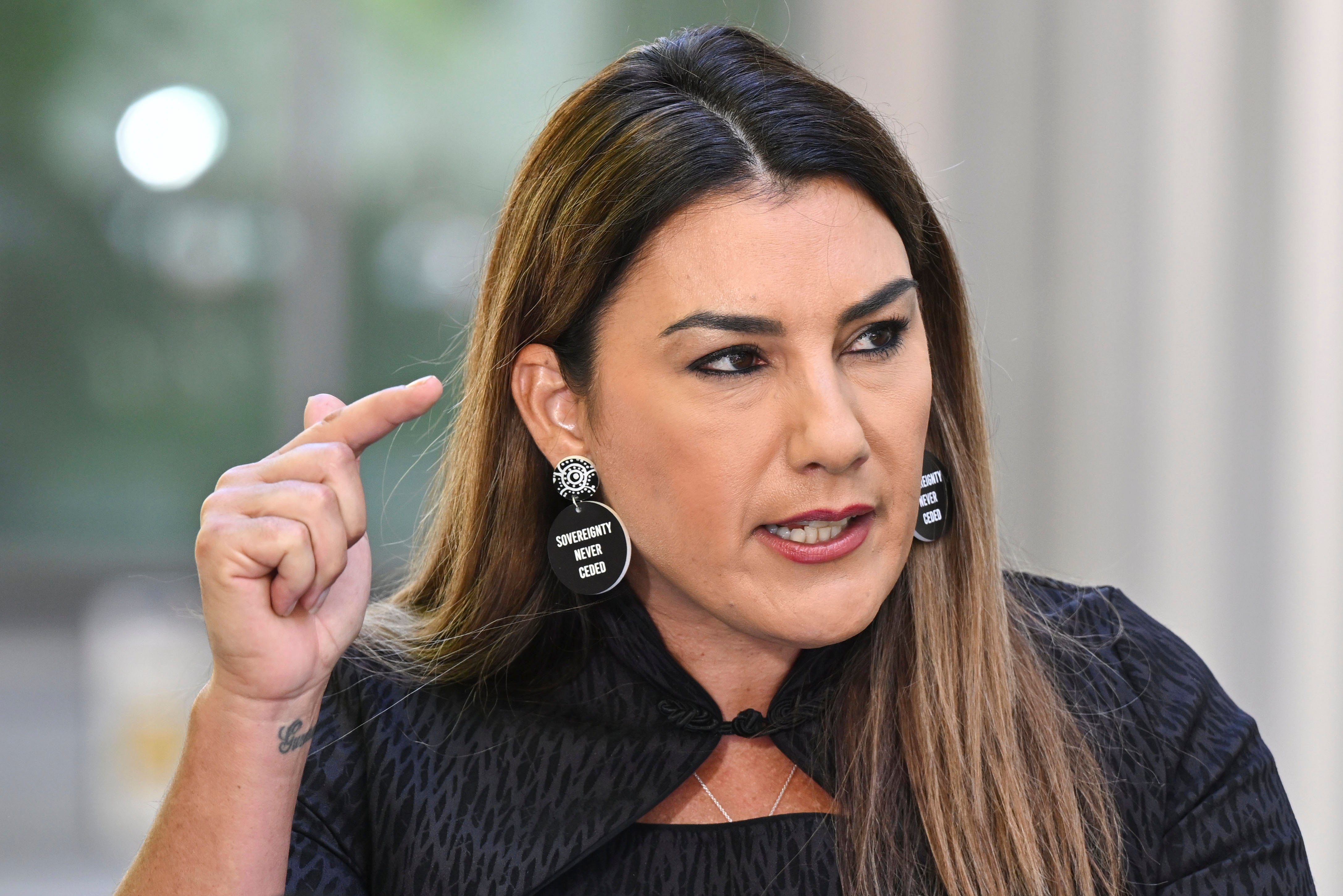Indigenous senator quits party over Australian referendum
An Indigenous senator in Australia has quit the minor Greens party in a disagreement over a referendum to be held this year that would create an Indigenous Voice to Parliament

An Indigenous senator in Australia quit the minor Greens party on Monday in a disagreement over a referendum to be held this year that would create an Indigenous Voice to Parliament.
Sen. Lidia Thorpe’s resignation illustrates deep divisions among Indigenous Australians on the referendum and increases the difficulty for the government in getting legislation through the Senate.
The Greens have suggested they will support a referendum likely to be held this year that would enshrine in the constitution a body representing Indigenous people to advise Parliament on policies that effect their lives. It would be known as the Indigenous Voice.
Thorpe had argued that Australia should first sign a treaty with its original inhabitans that acknowledged that they had never ceded their sovereignty to the British colonists.
She said after quitting the Greens that the party’s support for the Voice was “at odds with the community of activists who are saying treaty before Voice.”
“This country has a strong grassroots black sovereign movement full of staunch and committed warriors and I want to represent that movement fully in this Parliament,” Thorpe told reporters. “It has become clear to me that I can’t do that from within the Greens."
Another high-profile Indigenous Sen. Jacinta Nampijinpa Price has also spoken out against the Voice, arguing it would divide the nation along racial lines. Her conservative party, the Nationals, took an official position in November to oppose the referendum, prompting a senior lawmaker and Voice advocate Andrew Gee to quit the party.
Bipartisan support has long been regarded as a prerequisite for a referendum’s success. But despite the divisions, an opinion poll published by The Australian newspaper on Monday found 56% of respondents in favor of the Voice. Opponents accounted from 37% and 7% were undecided.
The survey of 1,512 voters nationwide was conducted from Feb. 1 to 4. It had a 3 percentage point margin of error.
Indigenous people accounted for 3.2% of Australia’s population in the 2021 census. Indigenous Australians are the most disadvantaged ethnic group in Australia. They die younger than other Australians, are less likely to be employed, achieve lower education levels and are overrepresented in prison populations.
Greens leader Adam Bandt and his deputy Mehreen Faruqi said they were sorry Thorpe had decided to leave their progressive party.
Bandt said he had told Thorpe that the party’s constitution allowed her to take a different position on the Voice from her colleagues.
Pakistan-born Faruqi said she and Thorpe had worked together as “strong allies against white supremacy and racism in all its forms.”
“I know that we will continue to work together, this work of decolonization, as well as working for climate justice,” Faruqi said.
Thorpe said she would continue to work with the Greens on their climate policy. The Greens want Australia to reduce its greenhouse gas emissions by 75% below 2005 levels by the end of the decade.
The center-left Labor Party government enshrined in law a 43% target after it was elect in May last year.
Labor has relied on the Greens’ 12 senators to pass legislation through the upper chamber that the conservative opposition party opposes.
With the Greens’ support, Labor had only needed to enlist the vote of a single unaligned senator. With Thorpe’s departure, Labor now will need the support of two unaligned senators.
Bandt said the government would continue to rely on the Greens to get its legislative agenda through the Senate.
“The situation remains now still more or less the same in the Senate. The Greens are central in the balance of power in the Senate,” Bandt said.
Thorpe has proved a radical and divisive element in the Senate. She was criticized for referring to the then-British monarch during a Senate swearing in ceremony in August last year as “the colonizing, her majesty Queen Elizabeth II.”
She resigned as the Greens deputy leader in the Senate in October over what Bandt called a “significant lack of judgment” in failing to declare an intimate relationship she had with a former president of a biker gang.
Bookmark popover
Removed from bookmarks